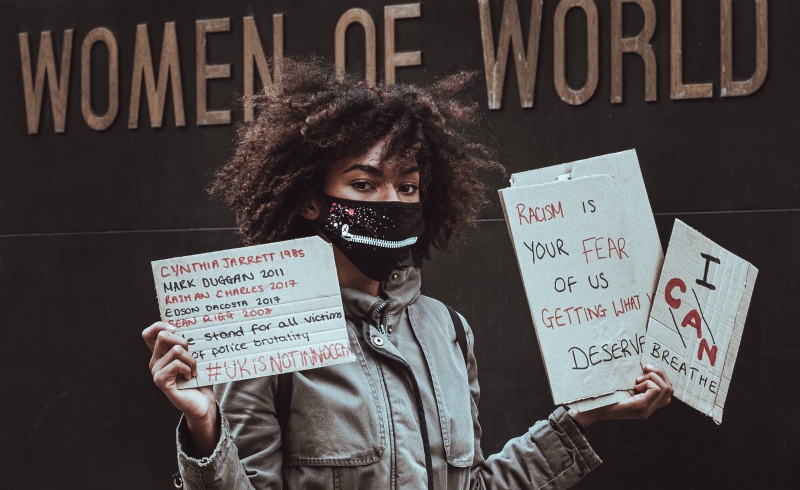Why Global Development Needs Black Activism - 4 minutes read
 —
—By Natalie Lartey
alking about racism in the workplace (PDF) is not easy. But global Black Lives Matter protests against institutional and systemic racism, triggered by the brutal death of George Floyd, has forced critical, albeit uncomfortable, conversations worldwide. The development sector’s longstanding silence on race and racism has been broken.
With these conversations come the hard truths – that the sector needs to unpack the complex ideas that underpin racism, and to understand how racism impacts our organisations and our mandates. Black activism has the power to ensure this unpacking process takes us in the right direction, and leads us to concrete action.
The power of false ideas
Racism is based on false ideas of what it means to be white, brown or black. It’s painful to admit that in our psyches we hold notions of black and brown inferiority and white superiority. Born during slavery, and used throughout colonialism and apartheid, these ideas shape development work today.
Since its inception, the sector has showcased black and brown desperation and helplessness, juxtaposed neatly alongside white charity. International non-governmental organisations (INGOs) have built their brands using damaging narratives of vulnerable African women and children.
These stories perpetuate the ‘white saviour’ narrative – even though the data tell a different story. According to the World Bank, diaspora remittances are three times larger than aid budgets, and more stable. Through remittances, Black, Asian and minority ethnic (BAME) communities are central to efforts to eradicate poverty.
Don’t like ads? Become a supporter and enjoy The Good Men Project ad free
But this story remains untold. It is time for new narratives in development.
Authority, expertise and knowledge
The associations linking knowledge, expertise and authority with being white also call for fundamental change. Anti-racist reform has the potential to usher in change that sees funding allocated based on partners’ understanding of need. Donors and INGOs could become part of a network, rather than a hierarchical chain.
If the theoretical work of Black activists is added to our collective knowledge in this area, development would no longer be characterised as a ‘Southern’ issue. It would be a global problem maintained by structural issues that include racism. The fight against poverty would be led by Southern development actors. As the people closest to the issues, they would also be at the forefront of how development is conceptualised and delivered.
Diversity and inclusion
A diverse and inclusive workforce is a major step forward in righting these wrongs. However, data from the charity sector show that only 9% of third sector staff identify as BAME, and this figure decreases significantly in senior management.
These figures pose a serious challenge. Retaining and promoting BAME researchers, communicators and senior leaders in development is critical. It will bolster the insights needed to tackle racism through our work. Supporting Black activism within the sector will improve the quality of those insights and help those working towards change to challenge the status quo.
The road to anti-racism
Reform in the development sector is long overdue. Leadership is still dominated by older white men and partnerships are hindered by power imbalances. Racial discrimination goes unchecked.
To eradicate persistent racism and promote racial equality in development, nurturing pockets of Black activism within organisations will be a crucial part of the sector’s transformation.
Through the Black Lives Matter movement, Black activism has prompted deep reflection on issues of race and racism. As the fight for racial equality continues, I am confident Black activism has the potential to hold the sector to account.
If INGOs cannot align with or support Black activism internally, there is little hope the sector can drive anti-racism in the outside world. Southern leadership in development is Black activism in action.
—
Previously published on iied.org and is republished here under a Creative Commons license.
—
***
If you believe in the work we are doing here at The Good Men Project and want to join our calls on a regular basis, please join us as a Premium Member, today.
All Premium Members get to view The Good Men Project with NO ADS.
Need more info? A complete list of benefits is here.
—
Photo credit: Joao Pereira via Flickr, CC BY-NC-SA 2.0
Source: The Good Men Project
Powered by NewsAPI.org